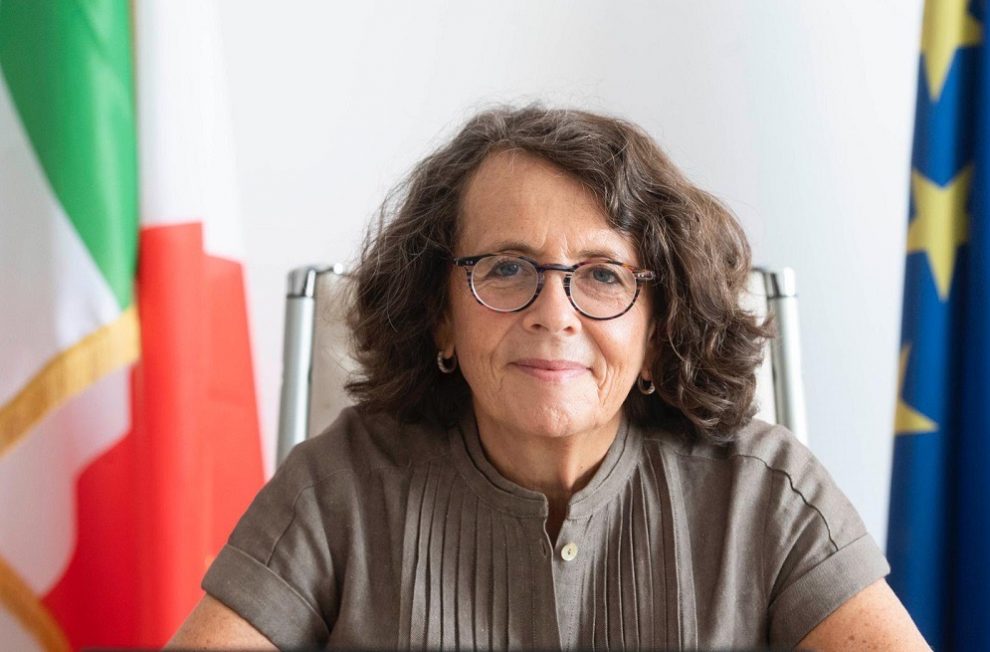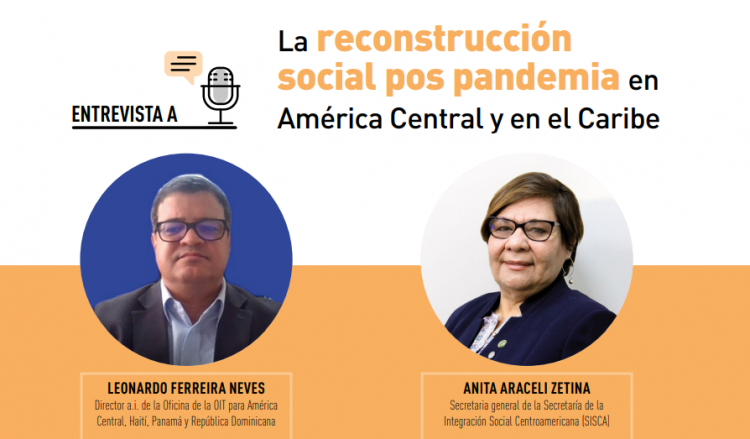Marina Sereni, viceministra de Asuntos Exteriores y Cooperación Internacional de Italia

I am writing these lines at a time – early December – when there are reasonable expectations of being able to control the epidemiological situation. However, we will have to live with the virus for an indefinable time and at the same time we will be forced to make great efforts to reactivate the economy. The accumulated losses throughout these months are enormous. The projection of the contraction of GDP in the EU for 2020 is -8.3% (European Commission). According to ECLAC, in Latin America the decline will be -9.1%.
In addition to the economic recovery, there is the need to confront the strong social inequalities that the pandemic crisis has laid bare and, what is worse, has exacerbated, especially affecting those groups that were already weak before. It will not be easy, especially in countries where the capacity of citizens’ social protection systems is limited.
In speaking of inequalities, I am going to refer to young people, whom the pandemic has placed at the centre of public interest. On the one hand, the pandemic has had a negative impact on all facets of young people’s lives, including socialisation with their peers, who, due to lockdown measures, have had no choice but to practise it from a distance; on the other, the awareness of two realities is leading economic reactivation to be linked to the well-being of future generations[1].
The first has to do with the fact that the pandemic crisis is leading to a rethinking of the very foundations of our development model, around which doubts and fears had arisen, even before the pandemic, due to the major trends the outcomes of which are impossible to foresee: climate change, population ageing, globalisation, migration and technological progress.
The crisis has forced us to become aware of the so-called “globalisation of risk” (Beck), which depends on the increasingly intense and accelerated flows of people and goods. The presence of undesirable side effects, which are often dramatic, raises the urgent need to slow down, to redesign the economy, to avoid changes that could end up being irreversible (for example, the destruction of natural resources) and that sooner or later we would regret. While the production and consumption systems will have to bear the consequences in future generations, we will have to turn to young people to inject new energy that helps to renew, to engender more resilient societies.
After all – and this is the second aspect to be aware of – it is young people and future generations who will have to bear the brunt of the economic recovery. In fact, in order to recover, countries will have to resort to very large debt, which will presumably take a long time to repay, and it will be the next generations who will have to repay it.
Considering young people and future generations in this context necessarily involves considering the problem of the inter-generational transmission of advantages and disadvantages. There are at least 3 areas where inequalities associated with origins are reproduced and on which policies should focus their efforts and energies:
- Training and education at all levels, from the first years of life and including university training. Well-being depends more and more on the access to and use of knowledge. Quality training and education, with adequate public investments, can make citizenship grow again and make the social elevator work, reducing disparities such as those reflected, for example, in school drop-outs, low educational results, gaps between schools in different regions or neighbourhoods and reduced years of study.
- Insertion into the world of work often means that many young people – especially those belonging to the most disadvantaged classes – remain in the wide area of insecure jobs, low-skilled and more vulnerable to economic shocks. However, the inclusion of young people into the labour market could become a less arduous path if investments were to be made in active labour policies, that is, through guidance, assistance and intermediation services, vocational training and other facilitating measures.
- Economic security to face transitions (work, formation of a family, parenthood, etc.) in conditions of autonomy and to forge, more generally, a path of their own, freely chosen and – for those who have lived in a less favoured socio-economic environment – without the attendant constrictions. Without risk of falling into welfare, there are several ways of endowing young people with resources (the universal child allowance being introduced in Italy may be a useful example in this regard). Without them, the chances of finding good future prospects for those who do not have a family to provide them are rather slim. The issue of economic security should surely be extended to the revision of the most classic of inter-generational pacts: the pact on social security, since the future guarantee of the pension is disappearing due to the reduction of the population of working age, the low fertility rate and increasing longevity.
The foregoing – I will say it here in passing, it is in any case a fundamental aspect for any recovery action that seriously aims to overcome current inequalities – is also valid, and in very similar terms, for women. The demand to remove the obstacles faced by women since before COVID-19 cannot be ignored, and some of these have even been aggravated by the pandemic, starting with the possibilities of access to and permanence in decent work.
When it comes to designing post-pandemic scenarios, it is essential to avoid the danger of consolidating the social configuration whereby wealthy families have the possibility of offering great initial advantages to their children, which also helps them achieve better results. But, as we have seen, in addition to the typically social inequalities, we can no longer ignore the inequality that refers to relations with future generations. In this sense, in addition to the three investment priorities that I have mentioned, it is necessary to go one step further and add the perspective of inter-generational justice to the list of ex ante and ex post evaluation criteria of public policies, as governments have now started to do with gender equality.
Only in this way can we make sense of keywords such as equity, sustainability and resilience, and chart a future horizon for young generations.
References
European Commission (2020), European Economic Forecast, Summer 2020 (Interim) , European Union.
ECLAC, Fiscal Panorama of Latin America and the Caribbean, 2020 Fiscal policy amid the crisis arising from the coronavirus disease (COVID-19) pandemic, United Nations, Santiago de Chile.
Beck, U. (2002), ed. orig. 1997, Che cos’è la globalizzazione. Rischi e prospettive della società planetaria, Carocci, Rome.
[1]The name of the recovery plan in Europe is very telling: NextGeneration EU. In fact, it is proposed as a long-term policy tool. It also links recovery to the axes of the EU’s strategic agenda, that is, the green and digital transition. It is a plan understood as a great investment for the future.



